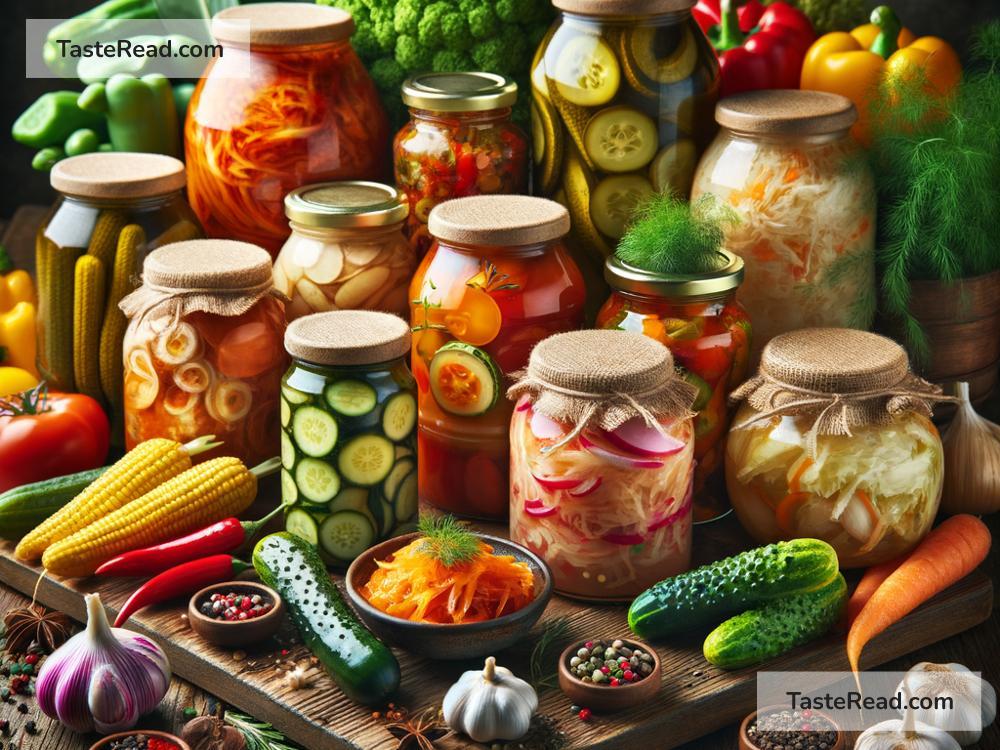The Benefits of Fermented Foods for Gut Health
Are you feeling bloated, tired, or just not quite right after a meal? Your gut health plays a big role in how you feel every day. It’s like the engine of your body — if it’s not working well, the whole system slows down. One simple way to improve your gut health is by adding fermented foods to your diet. These foods are not only delicious but also come packed with health benefits. Let’s dive into why fermented foods are so great for your gut.
What Are Fermented Foods?
Fermented foods are foods and drinks that have gone through a process called fermentation. This is when natural bacteria, yeasts, or other microorganisms break down sugars in the food. This process gives fermented foods their tangy flavor and turns them into a powerhouse of nutrients. Some popular fermented foods include:
- Yogurt
- Sauerkraut
- Kimchi
- Kefir
- Pickles (if made the traditional way)
- Miso
- Tempeh
- Kombucha
These foods have been staples in diets all over the world for centuries.
Why Gut Health Matters
The gut isn’t just about digesting food. It’s home to trillions of microorganisms called your gut microbiome. These tiny bugs help your body absorb nutrients, produce vitamins, fight off harmful bacteria, and even support your immune system. A healthy gut is key to feeling good both physically and mentally.
If your gut microbiome is out of balance — meaning there are more harmful bacteria than helpful ones — you may experience problems like bloating, constipation, diarrhea, or more frequent illnesses. Poor gut health has even been linked to issues like depression, obesity, and autoimmune diseases.
How Fermented Foods Help Your Gut
Fermented foods are packed with probiotics, which are live bacteria that are good for your gut. When you eat these foods, you’re adding more helpful microorganisms to your gut microbiome. Here are a few ways fermented foods benefit your gut health:
1. Boost Your Digestive System
Probiotics in fermented foods make it easier for your gut to break down food and absorb nutrients. This means you’ll be getting the most out of the foods you eat. Plus, probiotics can help relieve common digestive issues like gas, bloating, and constipation.
2. Strengthen Your Immune System
Did you know that about 70% of your immune system lives in your gut? A healthy microbial balance is key to a strong immune system. The good bacteria in fermented foods help fight off harmful bacteria and viruses, keeping you healthier overall.
3. Support Mental Health
Your gut and brain are closely connected through something called the gut-brain axis. Scientists have found that imbalances in gut bacteria can impact your mood and mental health. Eating fermented foods may promote a healthier balance of bacteria, which can help reduce anxiety, stress, and depression.
4. Reduce Inflammation
An unhealthy gut microbiome can lead to inflammation in your body, which is linked to many chronic conditions, including heart disease and diabetes. Probiotics from fermented foods help keep inflammation in check.
5. Restore Gut Health After Antibiotics
Antibiotics are great for fighting infections, but they can also wipe out good bacteria in your gut. Eating fermented foods after a course of antibiotics can help restore the balance of your gut microbiome more quickly.
Easy Ways to Include Fermented Foods in Your Diet
Adding fermented foods to your meals doesn’t have to be difficult. Start small and find foods that you enjoy. Here are some simple ideas to try:
- Breakfast: Add a spoonful of yogurt or kefir to your morning smoothie.
- Lunch: Include a side of kimchi or sauerkraut with your sandwich or salad.
- Dinner: Use miso as a base for soup or tempeh as a plant-based protein option.
- Snacks: Sip on kombucha or snack on pickles.
Just make sure you’re choosing traditionally fermented products. Some store-bought pickles or sauerkraut, for example, are made using vinegar instead of fermentation, so they won’t have the same probiotic benefits. Look for labels that say “live and active cultures” or “fermented.”
Are There Any Risks?
For most people, fermented foods are safe and beneficial. However, people with certain health conditions or sensitivities should be aware of a few things:
- Fermented foods can be high in salt, so if you’re watching your sodium intake, be cautious.
- Kombucha and some fermented drinks may contain trace amounts of alcohol, so they may not be suitable for everyone.
- If you’ve never eaten fermented foods before, start with small amounts to see how your body reacts.
If you’re unsure, consult your doctor before making big changes to your diet.
The Bottom Line
Fermented foods are a tasty, natural way to improve your gut health. By adding probiotics to your diet, you’ll not only help your digestive system work better but also support your immune system, mental health, and overall well-being. With so many options to choose from, there’s bound to be a fermented food that you’ll love. So go ahead — give your gut the care it needs with some yogurt, kimchi, or kombucha, and start feeling the difference!
Your gut will thank you.


